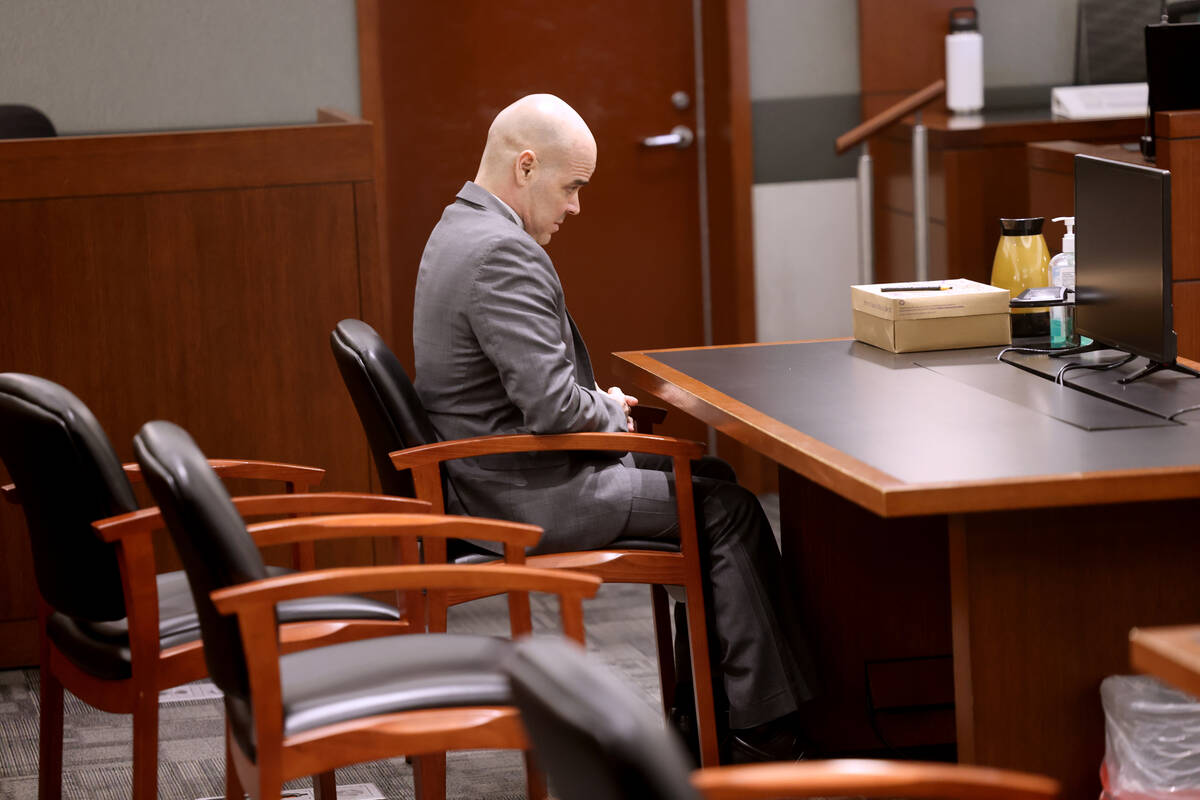For the second consecutive day, jurors in the murder trial of former Clark County Public Administrator Robert Telles failed to reach a verdict. Telles is accused of the brutal killing of investigative journalist Jeff German, who worked for the Las Vegas Review-Journal. The case has drawn significant public attention, with many eagerly awaiting the jury’s decision.
Lengthy Deliberations Raise Questions
On Tuesday, August 27, 2024, after nearly six hours of deliberations, the jury, consisting of seven women and five men, concluded for the day without reaching a consensus. They will resume deliberations on Wednesday morning. This comes after more than four hours of deliberations on Monday, leaving many observers puzzled about the outcome. Among those anxiously awaiting the verdict were German’s family, colleagues from the Clark County public administrator’s office, and groups of journalists.

The prolonged deliberations have led to speculation about the jury’s stance. Aleisha Goodwin, a county employee, expressed surprise at the delay, noting that she initially expected a quick verdict given the compelling DNA evidence and items found at Telles’ home. However, Telles’ defense attorney, Robert Draskovich, suggested that the extended deliberations indicate the jury’s thorough consideration of the evidence, which he believes could benefit the defense. Draskovich stated, “This case has been portrayed as a slam-dunk case, and while the evidence was very strong, they weren’t close-minded to an alternative explanation.”
Jury’s Unanimous Decision Required
Legal experts have weighed in on the extended deliberations, with some suggesting that the jury may be approaching a hung jury status. In Nevada, a unanimous decision is required to convict or acquit Telles. If the jury is unable to reach a unanimous decision, Judge Michelle Leavitt could instruct them to continue deliberating through an Allen charge, which is designed to encourage a deadlocked jury to reach a verdict. A hung jury could also lead to a mistrial, prolonging the legal battle.
During deliberations, the jury posed several questions to the court, including requests for assistance in reviewing video evidence that could potentially suggest someone other than Telles was driving the vehicle linked to the crime. They also asked for clarification on which piece of evidence contained news articles about Telles and sought to review a side-by-side video comparison of Telles and the assailant’s movements. However, the judge denied access to the side-by-side video, instructing the jury to refer to the existing evidence.
Telles’ Defense and Prosecution’s Case
Prosecutors have accused Telles of lying in wait for German outside the journalist’s home on September 2, 2022, before attacking him. They argue that Telles was motivated by German’s articles, which exposed allegations of misconduct in the public administrator’s office, including claims of a toxic work environment and an inappropriate relationship with a staffer. These revelations ultimately led to Telles losing his re-election bid.
The prosecution’s case is supported by DNA evidence linking Telles to the crime, surveillance footage, and items found at his home that match the clothing of the assailant. In contrast, Telles has maintained his innocence, claiming that he was framed by Compass Realty & Management, a real estate company he accused of corruption. However, these claims were investigated by the Metropolitan Police Department and found to lack sufficient evidence for prosecution.

As deliberations continue, both the defense and prosecution await the jury’s decision, which remains uncertain. The length of the deliberations suggests that the jury is grappling with the complexities of the case, leaving everyone involved in a state of suspense.
